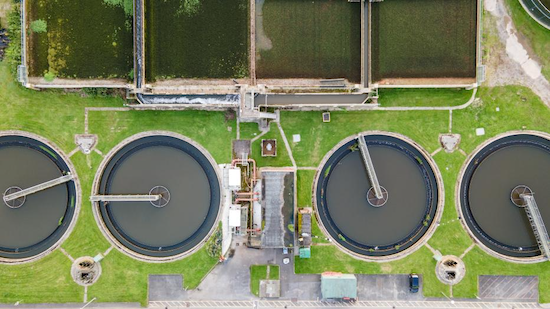01/11/2024
Wastewater utilities across the globe produce millions of tons of biosolids annually. Specifically, in England and Wales that number is over four million wet tons of biosolids annually and most of the biosolids are recycled on farmland. Biosolids are usually two-thirds water, and this causes significant issues. Storing water-laden biosolids releases greenhouse gases. The water also adds a lot of weight and volume to all the transport that is required. In England and Wales, the traditional farmland recycling route is also under pressure, but the alternatives are significantly more expensive – much of the additional cost being due to the water in the biosolids.

A trial of Jacobs’ biosolids drying process has shown effective drying potential while reducing greenhouse gas emissions.
In a successful trial with Welsh Water, Jacobs’ technology has shown significant reductions in biosolids cake water content. It works by aerating treated biosolids (sludge cake). This creates an aerobic environment in the cake, producing heat and enabling moisture to be removed. This unlocks the potential for reduced greenhouse gas emissions and greater opportunities for reduced processing time and energy use compared to current approaches. The technology is available as an augmentation to existing or planned storage barns, or as an entire new process stage. Jacobs is planning an additional operational trial to gather more data on emissions and peak performance.
The initial trial showed the technology may provide the following benefits:
- Reduction in air emissions such as greenhouse gases, ammonia and odors to address climate targets and emerging Industrial Emissions Directive (IED) requirements.
- Reduction of haulage movements and transport costs.
- Improvement in public general perception of biosolids-to-land due to a reduction in odor.
- Improvement in the ability to store the finished product for longer times in less space.
- Generation of a product more suitable for use in landscaping practices beyond agriculture because of the drastic change in physical characteristics of the dried biosolids material.
- Opening of new pathways for downstream processing such as carbonization.
The technology can be applied to any biosolids processed through anaerobic digestion with thermal hydrolysis — in England and Wales, this covers over 50% of the biosolids output.
Based on transport savings alone at full scale on the trial site, it is estimated the technology would pay for itself in under five years. This is only one of the benefits: there are several crucial rewards for wastewater utilities looking to build resilience in the context of increasing pressure and uncertainties with traditional recycling routes. The technology can help utilities increase biosolids storage capacity and gives the potential to reduce their greenhouse gas emissions.
About Jacobs
At Jacobs, we’re challenging today to reinvent tomorrow by solving the world’s most critical problems for thriving cities, resilient environments, mission-critical outcomes, operational advancement, scientific discovery, and cutting-edge manufacturing, turning abstract ideas into realities that transform the world for good. With approximately $15 billion in annual revenue and a talent force of approximately 60,000, Jacobs provides a full spectrum of professional services including consulting, technical, scientific and project delivery for the government and private sector. Visit https://www.jacobs.com/.



